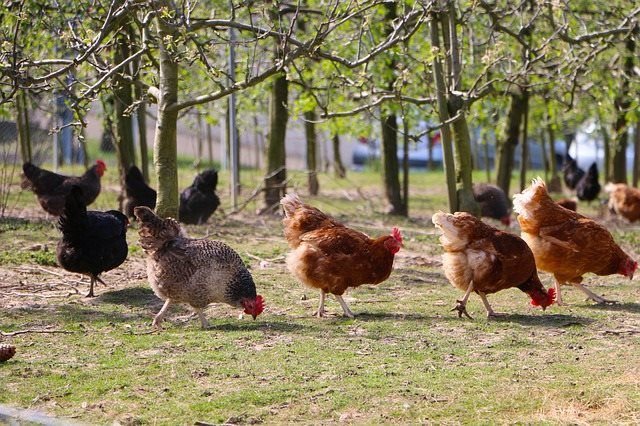
Related
Top stories






More news

















Logistics & Transport
Uganda plans new rail link to Tanzania for mineral export boost









Avian influenza mainly spreads between birds but can also occasionally infect other species including humans and pigs. Pigs are hosts to both human and bird flu viruses— not to mention hosting their own strains. The prevention of infectious diseases in pigs and birds is important for both animal welfare and economic productivity. Moreover, prevention is also important for food safety and public health when zoonotic pathogens are concerned.
Currently, there are six reported cases in South Africa of HPAI on commercial poultry farms, which have resulted in very high mortality in a short amount of time. The only way to eradicate AI on an infected farm is to cull all the birds on the farm and possibly adjacent areas too. This is devastating to South Africa’s economy and has an impact on exporting our products because imports of live birds, eggs and bird products are then not permitted by other countries except under strict conditions.
Dr Bisschop from Avimune commented on the latest news on avian influenza. "The disease is brought into South Africa by waterbirds when they migrate from other regions of the world, including other parts of Africa and even as far as Europe and Asia. These water birds do not become sick or die from the disease and are known as disease carriers.
"They are found on dams and pans near to poultry farms where they excrete the virus which can then easily spread onto poultry farms in small particles of their manure.
"Once the chickens have contracted the virus – be it through the wind carrying dust particles or fomites (little bits of biological/organic material that can attach to shoes, clothing, vehicles, and anything that moves in and around sites/farms) - the next step would obviously be to immediately limit movement between different sheds on the farm. In cases of HPAI the mortality rate will increase very quickly in only a few days. Other signs that may be seen, include poor appetite with birds standing quietly in the shed and waiting to die."
Once any chickens on the farm become infected, the entire farm is at serious risk from the spread of the virus. "If biosecurity protocols are not implemented and followed by the manager and every single worker, the disease will inevitably spread even further. People underestimate the severity of the virus and its ability to spread," says Dr Bisschop.
"Biosecurity will only work if always observed. Biosecurity should not only be implemented most of the time, but ALL of the time, by everyone who enters and exits the farm."
Much like Covid-19 was not taken seriously in the beginning stages, the spread of avian influenza and the effectiveness of biosecurity is not taken seriously until it hits a farm, and the birds all need to be killed to stop the spread of the virus.
If management can set the example of always implementing strict biosecurity protocols, the staff, family of the farm and even visitors will find it easy to implement and should feel encouraged as a community, ultimately, decreasing the spread of AI. People should ensure that they cook their meat properly to kill any disease/germs in the meat.
Taking all the above into consideration, Biosecurity lies at the forefront of alleviating the spread of viruses, and as humans, we could take a page out of this book and possibly be more attentive to protecting ourselves in the coming winter months. As a trusted animal healthcare company in the industry, Afrivet calls on commercial and small-scale farmers and consumers to think ahead, be proactive and stick to the rules. “We are already applying this in our everyday lives during the Covid Pandemic and this is equally important for animal health.
Implement biosecurity measures and stick to the rules. Set the example for those around you, so that together we can make a difference," says Dr Peter Oberem from Afrivet.
The South African Poultry Association (Sapa) launched its Sapa Biosecurity Audit Initiative in mid-December of last year. There are four Sapa auditors on the ground; Eastern Cape, KwaZulu-Natal, Western Cape. The expectation is to audit 950 farms and currently, 69 farms countrywide have been audited.